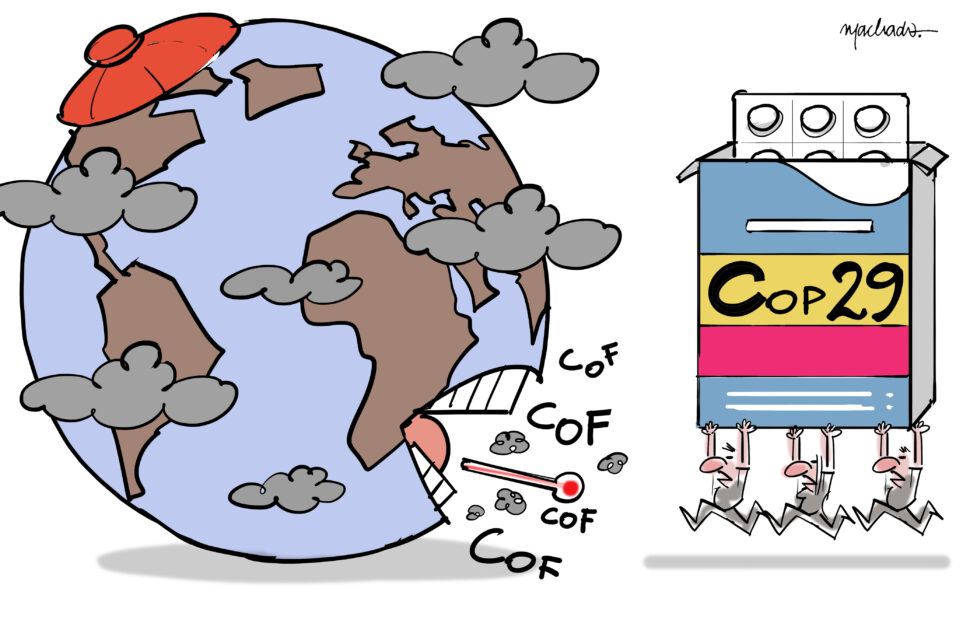
Between November 11th and 22nd, leaders and representatives from 198 countries will meet in Baku, capital of Azerbaijan, to discuss the climate — and consequently, the future of our planet — at COP 29. The conference is the main meeting of the United Nations (UN) to discuss and make decisions on the economic, social and environmental impacts of climate change.
This year, the COP already begins with an impasse that divides developed countries and developing nations: the New Collective Quantified Goal – NCQG, a rule that determines how financing related to climate change will work as from 2025. Climate finance is the money that countries invest to combat the advancement of climate change caused by global warming.
In 2015, when the Paris Agreement was signed, it was established that developed countries would invest 100 billion dollars (around 550 billion reais) per year in measures to combat climate change in developing nations.
In other words, richer countries would send money to poorer countries to act in favor of the environment. However, the agreement, which would be valid from 2020 until 2025, was not fully fulfilled.
At COP 29, participants will negotiate what the new rule will be like. The pre-event meetings have already made it clear that there are disagreements. While developing countries intend to continue demanding investment from world powers, these countries want to increase the number of money-giving nations. They even hope that countries that previously only received money will start donating.
Brazil, in turn, argues that new financial commitments should be assumed by the richest nations — without pressure on the poorest. Furthermore, it wants to create measures to ensure that this money is used in a transparent way to generate clean energy and deal with the problems caused by global warming.
| In 2025, it will be hereBrazil will host the next climate conference, COP 30, which will take place in Belém, Pará, next year. |
The main debates and topics of COP29
In addition to the new financing rule for the poorest countries to deal with climate change, other issues will be discussed by participants.
Check them out:
BUYING AND SELLING CARBON
Another central topic at COP 29 will be the carbon market. Discussions should revolve around the creation of a mechanism that allows “negotiating” pollution between countries and companies. The idea is that the carbon that a country or company stops emitting into the atmosphere becomes a credit, with a defined monetary value, that can be purchased by other countries and companies. For Brazil, this issue is especially important, since the country is currently discussing its own rules for this market in the National Congress.
GOALS TO LIMIT GLOBAL WARMING
It is also expected that countries will define a new Nationally Determined Contribution – NDC, which are the new goals to limit global warming to 1.5°C above pre-industrial levels. Nations are expected to propose concrete plans, including phasing out fossil fuels such as oil and mineral coal, and the increase in sustainable energy transition. According to the UN, the target of 1.5ºC (degrees Celsius) is still technically possible, but every day it becomes more difficult to achieve. Under current conditions, the planet is heading towards a temperature increase of up to 3.1°C.








